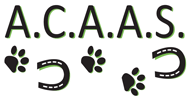ACM40418 Certificate IV in Veterinary Nursing
To register your interest, email us at info@acaas.vic.edu.au to receive detailed information
Training at ACAAS provides you with an outstanding practical hands on learning experience.
Training takes place over a two year period. Following the 3 week intensive Introduction Block, students will attend one theory session per week and one practical session for 18 months – enabling them to complete the knowledge component whilst gaining hands on practical experience. The last 6 months of the 2 year period is dedicated to ensuring all knowledge and practical components are completed so as to meet the requirements for the qualification in order for the student to graduate.
Students are supplied with training materials of the highest standard written by our team of veterinarians and critical care nurses. The materials relate to all aspects of the required learning and form a valuable resource to be used in professional situations. Assessments support and enhanced learning are developed to encourage learners to research further into industry related topics.
Unique to ACAAS is our system of mentoring where students receive tailored mentoring (by ACAAS staff) – assisting in real life situations that are part of the daily requirements of a veterinary clinic. This practical training ensures that all students have the highly developed professional skills required by the veterinary industry.
Students are required to complete at least two small animal Veterinary Practical Placements and one placement related to their elective choice (Equine & Wildlife).
We offer students a unique opportunity to visit a pathology facility. Gribbles laboratories are fully equipped with the latest diagnostic equipment and the most advanced technology. The Gribbles lab team consists of exceptional personnel and pathologists who are specialists in their field.
With small class sizes – never more than 15, students enjoy an outstanding learning environment designed to produce practicing veterinary nurses with the knowledge and skills to make a significant contribution to animal health and welfare.
And last but not least our students do not need to be working in the industry to study with us.
Further information on RPL (recognition of prior learning) is available upon request.
